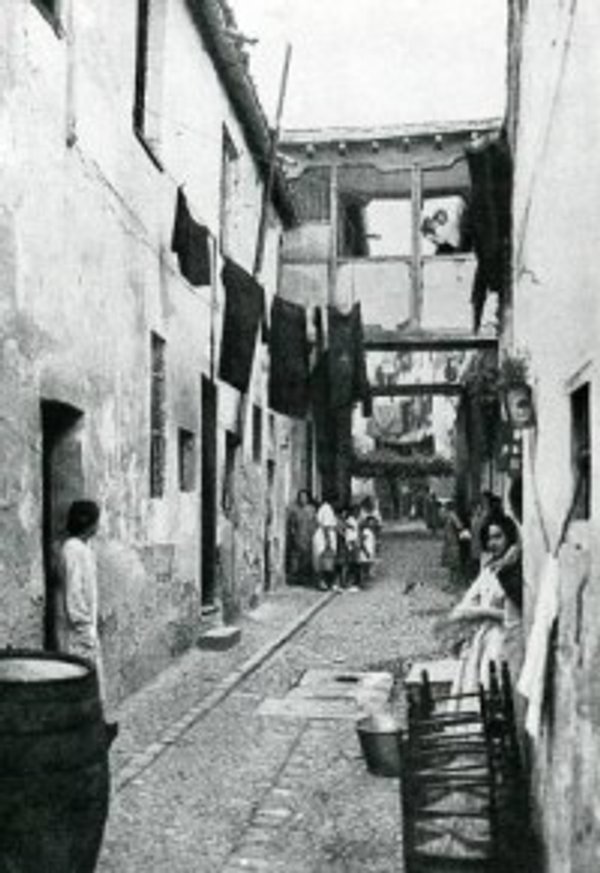“I have on my conscience,” St Josemaría often said, “many hours spent hearing children’s confessions in the poorest districts of Madrid. I would have liked to go and hear the confessions of all the children in all the saddest, most destitute neighbourhoods in the world. They would come with runny noses; you had to start by cleaning their faces before going on to clean up their poor little souls.”
* * * * *
Madrid 1930s
One of the young men who used to go with St Josemaría was José Ramón Herrero, who at the time was a first-year law student. His testimony is particularly valuable, because he was an eyewitness to St Josemaría’s pastoral work during those years.
“The power of Opus Dei is prayer,” St Josemaría often said in different ways. And in the very early days of Opus Dei he relied especially on the prayer and suffering offered up to God by those who were poorest and most needy.
“I always went to Confession to the Father, as we called Don Josemaría,” recalls Herrero, “and I sometimes went with him to teach catechism. There was a group of five or six students who used to go, and we would meet on Sunday mornings at the Madrid Metro.”
”When we came out of the Metro there was a fairly long walk over weed-grown, muddy ground until we came to the shacks where the children we taught catechism to were living in. They were dirty and ragged, but very lively, and very keen to learn. The Father wanted us to meet their families and get to know their parents, but it wasn’t easy. Then one day a little boy came along in tears. ‘What’s wrong?’ we asked. ‘My Dad is really sick,’ he said. We went back with him to the shack where he lived. It was just a heap of old tins and dirty cardboard, with a number of miserable children huddled inside, and his father, shaking with fever, lying on a sort of hard old bed. So we did what we could for them.
”One day St Josemaría said to me, ‘Would you like to come with me to visit some sick people?’ We went to the General Hospital, which was in Atocha, by Madrid’s railway station. It was a massive building with a big central courtyard and very high ceilings.
”Everything was cold, sad and soulless. I’ll never forget the impact it made on me: those huge wards were crowded with sick people and as there weren’t enough beds they were crammed in everywhere: by the stairs, in the passages, and in every corner, on mattresses, on pallets, on the floor. And they had typhoid, pneumonia, or tuberculosis, which was incurable in those days. Most of them were people who had escaped from the poverty of the rural areas to come to the capital city and make their fortune, and they’d ended up like that.
”In Madrid back then, there weren’t enough hospitals to take in so many sick people, and in the hospitals they didn’t have enough staff to look after them. When the Father went to visit them, as well as hearing their confessions he would give them the care and services they needed. Things that these days would be done routinely by the hospital staff, but in those years, in that situation, nobody was doing for them.
”He would wash them, cut their nails, do their hair for them, shave them, empty the bedpans… He couldn’t take them any food because the hospital forbade it, but he always left them something good to read. He would ask those sick men and women, many of whom had been given no hope by the doctors, to offer up their pain, their sufferings and their loneliness for the apostolate he was doing with young people.
”As I was still young, the day I went with him I stood back watching as he looked after the sick. I have that picture engraved on my soul: the Father kneeling by a sick person lying on a poor pallet on the floor, encouraging him, speaking in words of hope and comfort. The image never fades from my memory--the Father at the bedside of those dying people, consoling them and talking to them about God.
An image that reflects and summarizes all those years of his life."
José Ramón Herrero
You can read more about the early life of St Josemaria at https://www.josemariaescriva.info/
